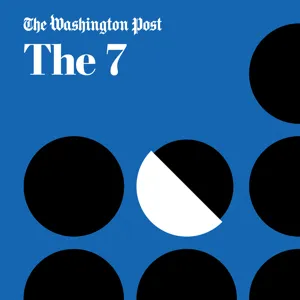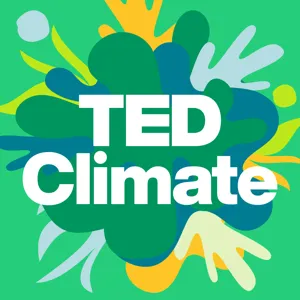Podcast Summary
Understanding nature's intricacies and the importance of education: Deep connection to nature and formal education are crucial in protecting the environment and creating memorable travel experiences
Having a deep connection to nature and understanding its intricacies, as demonstrated by individuals like Kimarin Ole Riamut from the Masai community, can be crucial in protecting the environment. Viator, on the other hand, can help travelers create memorable experiences by providing a platform for booking guided tours and excursions. Growing up in the Maasai community, Cameron learned the importance of being connected to the land and its resources, which shaped his identity. However, the value of formal education was not yet fully recognized in his community, making it a privilege for him to attend school. In summary, the lessons from nature and the importance of education can go hand in hand in preserving the planet and creating meaningful travel experiences.
Masai community's deep connection to nature inspires traditions and rites of passage: The Masai community's respect for nature through sustainable practices and cultural traditions fosters a harmonious and abundant way of life
In the Masai community, nature and culture are deeply interconnected. The landscape, rich in iconic wildlife, is not only a source of inspiration for their traditions and rites of passage, but also a reflection of their values and beliefs. The community's taboos and rules, such as not eating game meat if you have a lactating cow or not harvesting herbal medicine in a destructive way, ensure a sustainable relationship with nature and the abundance of wildlife. These practices not only respect the natural world but also contribute to the community's respect and status within their society. The Masai people's deep connection to nature and their unique cultural practices create a harmonious and sustainable way of life.
Indigenous learning through nature: Indigenous communities value harmony with nature and learn through observation, storytelling, and community sharing. However, external systems can disrupt this balance and condition communities to see wildlife as a burden.
In indigenous communities, learning is an everyday experience that happens through observation, storytelling, and community sharing. The landscape itself is a source of knowledge, with plants and animals serving as indicators of weather patterns and cultural traditions. Nature is ascribed spirit and life, and harmony with nature is a deeply ingrained value. Despite occasional conflicts with wildlife, these communities have practices and customs that ensure coexistence. However, the introduction of external systems like English law and its mockery of life compensation for wildlife-related deaths can create tension and condition communities to see wildlife as a burden rather than a part of their way of life. For instance, until recently, a community member killed by an animal would only receive around $30 in compensation from the government. This undervaluation of human life can foster animosity towards wildlife and disrupt the delicate balance between humans and nature.
Valuing Human Life in Conservation: A Complex Issue: Despite risks, indigenous communities deeply value and protect nature, communicating with animals for survival and understanding the interconnectedness of all life forms.
The value placed on human life in conservation areas can be devastatingly low, and those who live in harmony with nature, often indigenous communities, face significant challenges and risks. For instance, if a person is killed by an animal while working to protect the environment, their life may not be valued or compensated fairly. However, these individuals have a deep connection to nature and rely on it for their daily survival. They communicate with nature through birds like honey guides, which lead them to honey or warn them of potential danger from animals like buffalos. These experiences highlight the importance of understanding and respecting the interconnectedness of all life forms in nature. The honey guide's ability to lead humans to honey in exchange for being fed by them is a perfect example of a mutually beneficial relationship. When we return, we will discuss the lessons Kimerin and his community are bringing to the global fight against extinction.
Indigenous knowledge and conservation: Bridging the gap between indigenous wisdom and Western conservation approaches is crucial for effective conservation efforts.
Indigenous knowledge, rooted in sustainable utilization and respect for nature, plays a crucial role in conservation efforts. This was exemplified in the discussion about the Maasai community in Kenya, who set aside forests as a lifeline for both their livestock and wildlife. By taking care of nature, the community ensured the forest's continued thriving, which in turn benefited the entire ecosystem. The speaker's personal experience of witnessing the degradation of their landscape and the loss of biodiversity sparked their interest in the global conservation movement. They recognized the importance of bridging the gap between indigenous wisdom and Western conservation approaches to effectively combat the extinction and climate crises.
Impact of climate change on indigenous communities in dry regions: Climate change disrupts indigenous communities' livelihoods and knowledge systems in dry regions, highlighting the need for community-based conservation that integrates local knowledge and involvement.
Climate change has a profound impact on communities that are directly connected to the land and its resources, particularly those in dry regions where water is already scarce. This was shared by a speaker who grew up in such a community and has witnessed firsthand the disappearance of familiar species and disruptions to indigenous knowledge systems of weather forecasting. The community's livelihoods, which are ordered around seasons, have been severely affected as rains become unpredictable. Learning about environmental issues from Western textbooks and professors felt distant and alien to this speaker, as they were used to observing and experiencing things firsthand. They also faced exclusion from their own land in the name of conservation. However, a new approach called community-based conservation has emerged, which aims to integrate indigenous knowledge and involve local communities in resource management. But it's important to question what is truly being sold in this arrangement and who holds the power.
Empowering local communities for effective conservation: Respecting indigenous knowledge and governance systems is crucial for successful and equitable conservation efforts. Empowering local communities to take control of their land and resources is essential for long-term sustainability.
Community-based conservation, which involves and empowers local communities in the protection of wildlife and their habitats, is crucial for effective and equitable conservation efforts. However, it's important to ensure that indigenous communities have full control and ownership of the land and resources, and that their traditional knowledge and governance systems are respected and integrated into conservation initiatives. Unfortunately, indigenous voices and knowledge have long been marginalized and overlooked in conservation conversations due to perceptions of inferiority and lack of scientific rigor. Furthermore, the role of customary institutions in regulating and enforcing conservation practices has been sidelined in favor of state and market actors. As global efforts to protect the planet continue, it's essential to include and empower hyperlocal indigenous communities in these initiatives to ensure their success and sustainability.
Recognition of Indigenous Rights vs. Tangible Support: Indigenous communities seek more than just recognition in documents, they require resources, integration of their knowledge, and a seat at the decision-making table to effectively address climate change.
While international treaties and global governance documents recognize the importance of indigenous knowledge and rights in environmental conservation and climate change initiatives, the translation of these recognitions into tangible support and resources for indigenous communities remains a significant challenge. Indigenous peoples are not just seeking recognition in writing, but rather, they want their human rights addressed, their knowledge integrated into decision-making processes, and resources allocated to them to effectively implement sustainable practices. Additionally, a significant portion of climate financing intended for indigenous communities often gets absorbed by various layers of implementation and awareness programs, leaving little to directly benefit their livelihoods. Indigenous communities view climate change as a matter of survival, and therefore, require equitable access to resources and a seat at the decision-making table to effectively address this issue.
Meaningful involvement of indigenous communities: Indigenous communities should be involved in decision-making and directly benefit from forest conservation funds to break the cycle of underfunding and underrepresentation.
While international pledges to fund forest conservation and reduce deforestation are welcome, it's crucial that indigenous communities, who often live in and depend on these forests, are meaningfully involved in decision-making and directly benefit from these funds. Historically, small grants have been the norm due to assumptions that indigenous communities cannot manage larger grants. However, this perpetuates a cycle of underfunding and underrepresentation. For instance, in Kenya, where only 5% of the land is covered by high canopy forests, yet most carbon is sequestered in savannah woodlands, there's a need for more equitable distribution of resources. If unlimited resources were available, communities would focus on securing land tenure, documenting indigenous knowledge, and adapting to climate change through sustainable utilization of the landscape. This would enable indigenous communities to not only survive but thrive while conserving nature.
Recognizing the spiritual value of nature and the role of Indigenous communities: Integrating indigenous knowledge and respecting their role in nature conservation leads to sustainable livelihoods and low carbon footprints.
The connection between financial resources and securing land rights for Indigenous groups is crucial for conservation efforts. The Maasai community, for instance, values nature beyond its practical uses, recognizing its spiritual significance and the role it plays in their identity. Nature heals, refreshes, and connects them back to themselves. The world would benefit from an integrated vision of humanity's relationship with nature, where multiple knowledge systems inform each other, and respect is given to the indigenous communities conserving lands. These communities, with their deep connection to nature, represent the future we want in terms of sustainable livelihoods and low carbon footprints. It's essential to recognize the spiritual value of nature and the sacrifices made by indigenous communities in conserving it. By valuing and integrating indigenous knowledge into conservation efforts, we can create a better future for all.
Exploring insights from experts and continuous learning: Investing time and effort in learning can lead to personal and professional growth. Share knowledge and experiences with others to help each other grow.
Importance of continuous learning and growth. We explored various topics and gained valuable insights from experts in their fields. Whether it's expanding your knowledge in a specific area or developing new skills, investing time and effort into learning can lead to personal and professional growth. Moreover, we emphasized the importance of sharing knowledge and experiences with others. By sharing insights and resources, we can help each other grow and learn. So, if you found this episode informative, consider sharing it with your network and engaging in discussions with others. Lastly, don't forget to rate and review the podcast to help us reach a wider audience. Join us next week for another insightful episode, and remember, learning is a lifelong journey.






